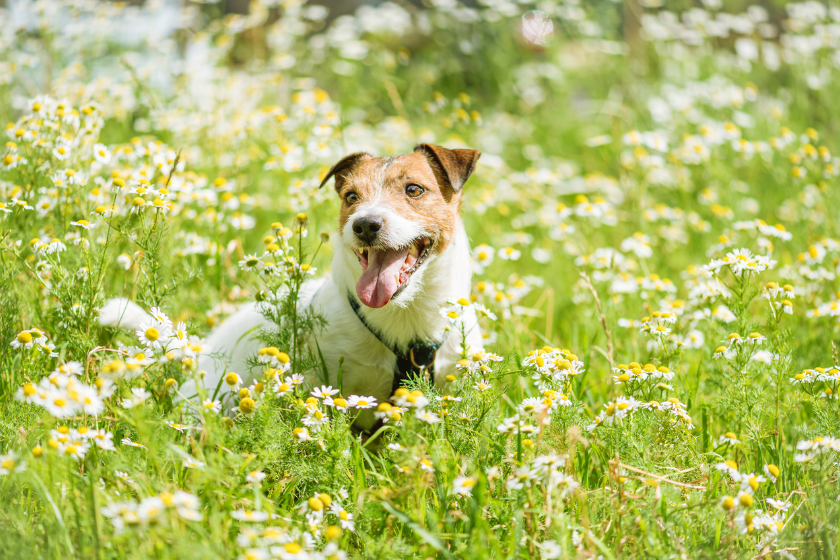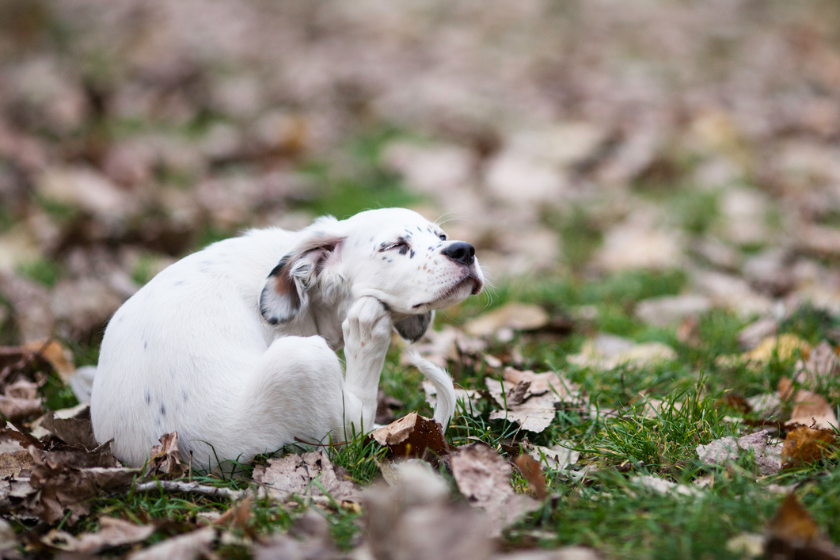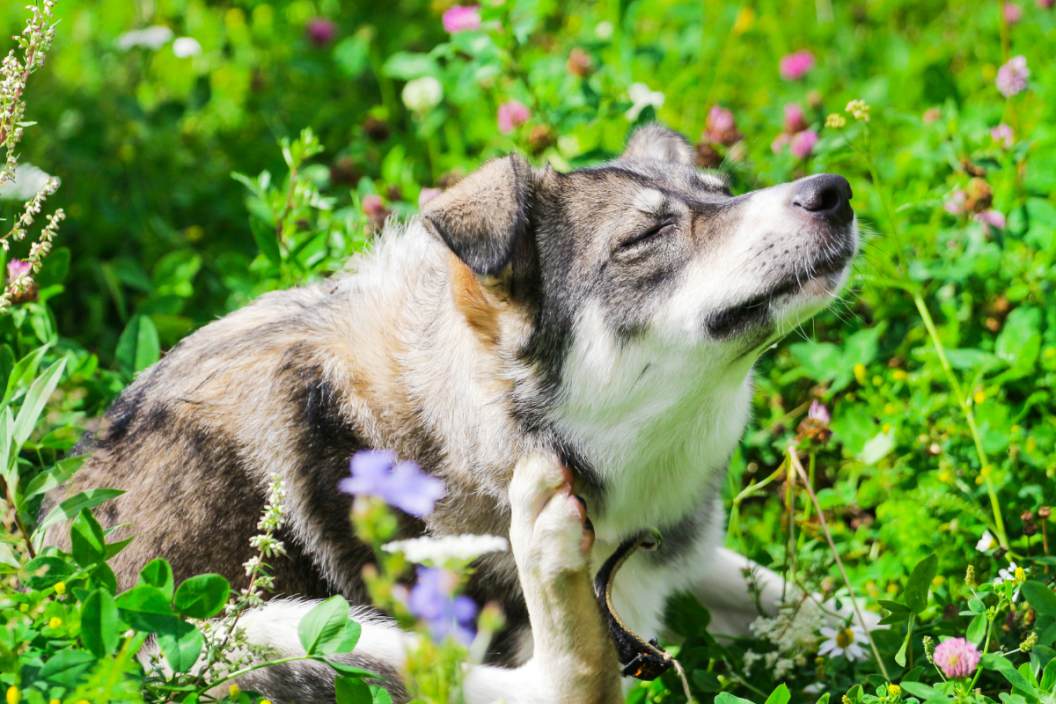Allergy season can be a difficult time for our furry friends. Many dog owners suffer from allergies as well, making them all too familiar with the sneezing, sniffling, and discomfort that comes with seasonal allergies. Unfortunately, these symptoms can be even more distressing for pets. Seasonal allergies in dogs can strike during all four seasons and may have a wide range of symptoms.
No matter what time of year it is, environmental allergens can affect your dog and cause an uncomfortable immune response. Dog allergies often present as itchy skin, but symptoms can also include sneezing, diarrhea, vomiting, eye irritation, ear infections, and more.
It's no fun to watch your pet suffer, but there are a few things you can do to help treat seasonal allergies in dogs. First, it helps to identify the cause. If you want to know what type of allergen is triggering your pup's symptoms, you may want to discuss allergy testing with your vet. In general, though, there are a few common causes of seasonal allergies in dogs. Read on to find the reason for the sneezin', depending on the season.
Spring Allergies in Dogs

Pollen is a huge source of allergies during the spring for pets and humans alike. Symptoms can include watery eyes, itchiness, runny nose, and sneezing. But, pets can also begin licking themselves more than normal, scratching more often, and breaking out in hives. Pollen allergies can also lead to ear infections. If you notice your pup shaking their head more, they may have an allergic reaction going on.
All their scratching and licking can also lead to hair loss and hot spots. Your pet's vet can treat skin allergies from springtime pollen. They may do skin testing to look for the cause of the allergies. Your vet may also refer you to a veterinary dermatologist to narrow down the exact cause. You can also use antihistamines like Benadryl to treat your pet's symptoms while working to narrow down the exact cause. Again, consult with your vet on the exact dosage for your dog and when to use it. Using an air filter or air purifier in your house can also help reduce the number of allergens floating in the air.
Summer Allergies in Dogs

In the dry summer months, many common allergy symptoms are caused by dust. However, summer is also when fleas thrive. Flea bites can cause your pup discomfort, especially if they have a flea allergy. Some pups can react to flea saliva, causing them to become red, itchy, and uncomfortable. The allergic reaction can cause atopic dermatitis, which a vet can treat. It is best to get your dog treatment as soon as possible. Their red, itchy skin is susceptible to secondary skin infections if it is already inflamed. If your pup is getting attacked by fleas, make sure you clean out their kennel, so there are not any lingering pests. Baths in hypoallergenic shampoos can help soothe your pup's skin, too!
Fall Allergies in Dogs

Environmental allergens during the fall months often come from plants like pigweed, sagebrush, goldenrod, lambs quarters, curly dock, and other fall-blooming plants. Another big source of allergies is dust mites. They can cause itchiness all over your dog's skin. The other environmental allergies are caused by mold. Falling leaves and rain create the perfect environment for mold growth in the dirt. When your pup goes out to play, they can inhale the mold spores. They can also transfer into your home, along with pollen on your dog's paws. Having wipes at the door can help with the transition inside after being in the yard and keep unwanted allergens outside.
Winter Allergies in Dogs

RELATED: The Signs & Symptoms of Common Food Allergies In Dogs
Mold allergies are at their peak during the winter months, thanks to lots of rain and snow creating damp areas that mold loves to grow in. Wash your pup's paws after going outside and keep the areas your pup frequently plays in as dry as possible. Airing out your home when the weather is nice outside and using an air filter are two ways to eliminate mold spores. Also be sure to keep leaves raked up and away from your house. Piles of leaves are the perfect spot for mold to grow, so try to keep those to a minimum.
How to Treat Seasonal Allergies in Dogs
Depending on the symptoms, treatment of seasonal allergies in dogs varies. A dog who is experiencing itchy, irritated skin may benefit from Benadryl in the short-term, while continued use of supplements like fish oil may help soothe their skin over time. There are also pills and shots for all types of allergies that can be prescribed by your vet. Considering asking if a drug like Cytopoint or Apoquel may be right for your pet.
How do you handle your dog's seasonal allergies? Tell us on our Wide Open Pets Facebook page.




